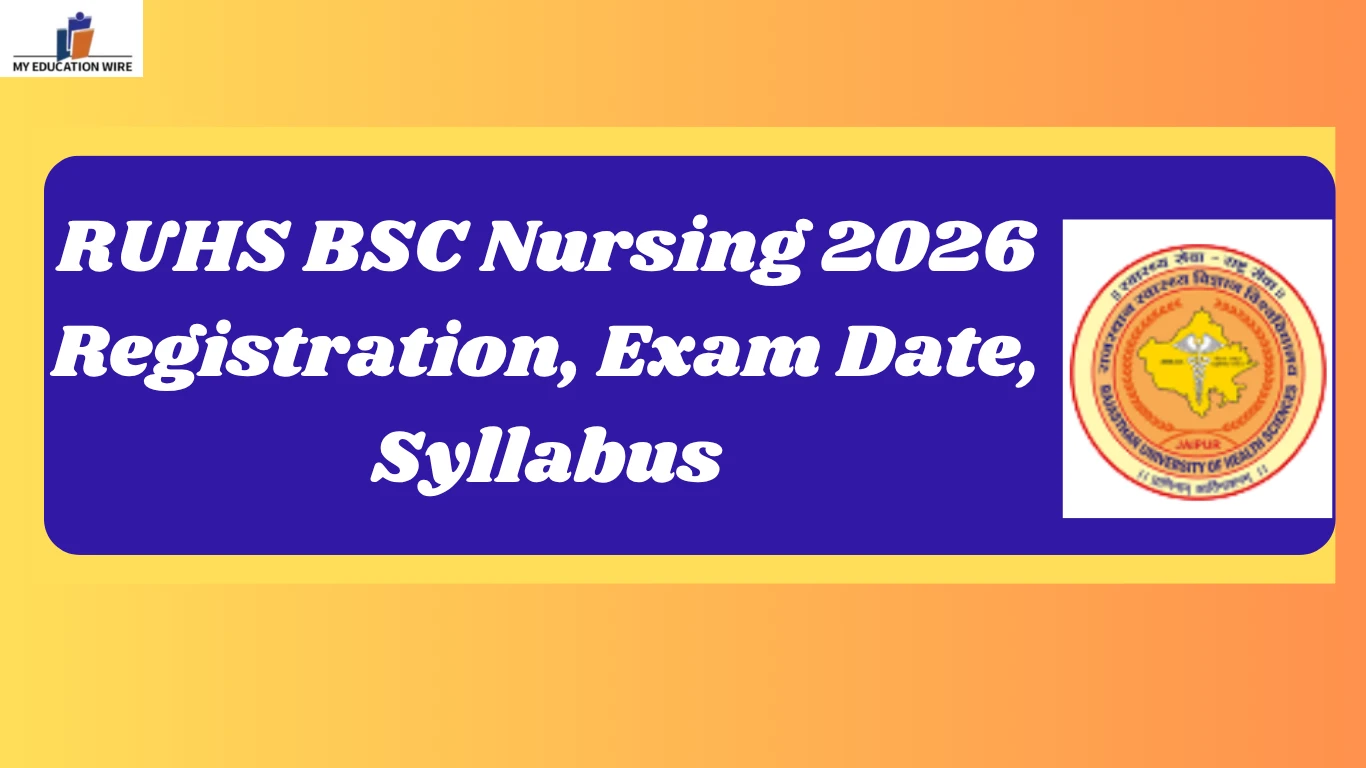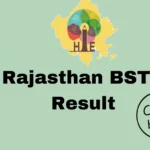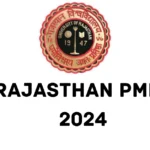| RUHS BSC Nursing 2026 Notification, Eligibility, Steps To Apply |
The Authority will start Registration Process for RUHS B.Sc. Nursing Exam 2026. Candidates can apply for this application July 2026. RUHS BSC Nursing Exam will held in the month of August 2026. The Rajasthan University of Health Science will conduct the RUHS B.Sc Nursing Entrance Exam 2026 for admissions into their 4-year B.Sc Nursing program. The application form for paramedical courses will also open. Interested and Eligible candidates Check your Eligibility and visit on the official website i.e. https://ruhsraj.org/
RUHS BSC Nursing 2026 Important Dates
The Dates for BSC Nursing 2026 Registration will available in below table
| EVENTS | DATES |
| Application Start | April 2026 |
| Closing Date | May 2026 |
| Correction window | May 2026 |
| Last date of fill Examination fee | June 2026 |
| Exam Dates | August 2026 |
| Admit Card | Will be updated |
| Entrance Exam | Will be updated |
RUHS BSC Nursing 2026 Form Date
The Application for RUHS BSC Nursing 2026 will start in the month of April 2026. The Process of RUHS BSC Nursing Registration 2026 will go till One month. To fill application form candidates must need to fill in their personal detail, educational qualification, upload documents, Pay registration fee. Must not that the RUHS Registration will not qualify confirm before payment of application fee. So ensure that the registration fee will pay successfully. For All Regular updates you can subscribe the channel – MYEDUCATIONWIRE.

| Link TO Download – RUHS BSC Nursing Application Form 2026 |
RUHS BSC Nursing 2026 Eligibility Criteria
| Course name | Educational Qualifications |
| BSc Nursing | Educational Qualification: Candidates must have passed 10+2 with Physics, Chemistry, Biology, and English. Minimum Marks: At least 45% aggregate marks in PCB and English (40% for reserved categories). Age Limit: Candidates must be at least 17 years old by December 31, 2025. The maximum age limit is 28 years for females and 25 years for males |
| Post Basic BSc Nursing | The candidates should have passed the class 12 exam from any recognized board/university with Physics, Chemistry, and Biology subjects with 45 per cent marks in aggregate (40 per cent marks for SC/ST candidates) or should have a diploma in general nursing from a college registered with the Indian nursing council. The candidate should be medically fit Age – No Restriction |
RUHS BSC Nursing Application Fee 2026
The RUSH BSC Nursing 2026 Application Fee is available below in table.CATEGORY APPLICATION FEE All categories Rs. 1800/- SC, ST, ST-STA Rs. 900/-
RUHS BSC Nursing Fee Structure 2026
The RUHS BSC Nursing Course Fee Structure is available below.Category Registration Fee Boys (General, OBC, MBC, EWS) 50,000/- per annum + Caution money as applicable. Boys (SC/ST) and all Girls 20,000/- per annum + Caution money as applicable. Private self – Financed Nursing Colleges Rs. 95,000/- Per annum + Caution Money as applicable.
RUHS BSC Nursing Documents 2026
- Transaction document / payment proof
- Date of Birth Certificate: 10th class mark sheet / certificate
- Mark sheet of 10+2 (senior school certificate examination) or its equivalent
- Copy of photo ID (driving licence / PAN card / Voter ID / Govt. or PSU card / School ID card / 12th class examination
- admit card / Aadhar card)
- 4 Passport size photo same as affixed on application form and also as uploaded
- Domicile certificate of Rajasthan state, if applicable
- Caste certificate, sub-category certificate, if applicable
- PwD certificate, if applicable
- EWS certificate, if applicable
- Migration certificate, if applicable
- Any other relevant certificate(s)
RUHS BSC Nursing 2026 Seat Reservation
The RUHS BSC Nursing Seat Reservation 2026 is different according to below parametersCANDIDATES RESERVATION B.SC. Nursing Candidates 85% of total Seats Bonafide Candidates 15% of total seats Female Candidates 50% of total seats
RUHS BSC Nursing Admit Card 2026
The RUHS BSC Nursing 2026 Admti card will out online by the authority and candidates can download it by entering user id and password. The RUHS BSC Nursing Admit Card downloading Link will be provide soon. Check Below Steps to download RUHS BSC Nursing 2026 Admit Card.
Steps To Apply For RUHS BSC Nursing 2026 Admit Card
| How TO Download RUHS BSC Nursing Admit Card 2026 |
| Step-1: Open your search engine and visit on the official website of RUHS. |
| Step-2: At homepage looking for the RUHS BSC Nursing Course. And Along with also youo can found the RUHS BSC Nursing 2026 Admit Card download link. |
| Step-3: Click on the admit card download link. |
| Step-4: Login at portal by filling in their required asking details. |
| Step-5: Now Admit Card will appear on your screen. |
RUHS BSC Nursing Exam Pattern 2026
The Rajasthan University of Health Sciences (RUHS) will conduct RUHS BSC Nursing Entrance Exam. The RUHS BSC Nursing Exam pattern and marking scheme is given below.Type Of Questions Multiple Choice Question (MCQs) Number of Questions 100 (34 questions from Biology, 33 each from Physics and Chemistry) Duration Of Exam 2 Hours Marking Scheme 1 mark for each correct answer Negative Marking No Negative Marking Language of Exam English and Hindi
RUHS BSC Nursing Exam date 2026
The RUHS BSC Nursing 2026 Exam Date has not been announced yet. The RUHS BSC Nursing Exam 2026 dates will announced along with the application dates. Or after the releasing of application dates. To Check Exam Dates candidates must visit regularly on the official website of RUHS.
RUHS BSC Nursing Syllabus 2026
Candidates RUHS BSC Nursing 2026 Syllabus in the table below. If you want to get RUHS BSC Nursing 2026 Syllabus in Hindi, For that copy the syllabus and paste on the google translator.PHYSICS CHAPTERS CHAPTERS NAME TOPICS 1 Electric Charges and Fields Electric Charge, Conductors and Insulators, Basic Properties of Electric Charge, Coulomb’s Law, Forces between Multiple Charges, Electric Field, Electric Field Lines, Electric Flux, Electric Dipole, Dipole in a Uniform External Field, Continuous Charge Distribution, Gauss’s Law, Applications of Gauss’s Law 2 Electrostatic Potential And Capacitance Electrostatic Potential, Potential due to a Point Charge, Potential due to an Electric Dipole, Potential due to a System of Charges, Equipotential Surfaces, Potential Energy of a System of Charges, Potential Energy in an External Field, Electrostatics of Conductors, Dielectrics and Polarisation, Capacitors and Capacitance, The Parallel Plate Capacitor, Effect of Dielectric on Capacitance, Combination of Capacitors, Energy Stored in a Capacitor (only formula). 3 Current Electricity Electric Current, Electric Currents in Conductors, Ohm’s law, Drift of Electrons and the Origin of Resistivity, Limitations of Ohm’s Law, Resistivity of Various Materials, Temperature Dependence of Resistivity, Electrical Energy, Power, Cells, emf, Internal Resistance, Cells in Series and in Parallel, Kirchhoff’s Rules, Wheatstone Bridge. 4 Moving Charges And Magnetism Magnetic Force, Motion in a Magnetic Field, Magnetic Field due to a Current Element, Biot-Savart Law, Magnetic Field on the Axis of a Circular Current Loop, Ampere’s Circuital Law, The Solenoid, Force between Two Parallel Currents – the Ampere, Torque on Current Loop, Magnetic Dipole, The Moving Coil Galvanometer. 5 (Magnetism And Matter The Bar Magnet, The magnetic field lines,Bar magnet as an equivalent solenoid (Only qualitative study),The electrostatic analog,Magnetism and Gauss’s Law, Magnetisation and Magnetic Intensity, Magnetic Properties of Materials-Diamagnetism, Paramagnetism and Ferromagnetism 6 (Electromagnetic Induction The Experiments of Faraday and Henry, Magnetic Flux, Faraday’s Law of Induction, Lenz’s Law and Conservation of Energy, Motional Electromotive Force, Inductance , AC Generator. 7 Alternating Current AC Voltage Applied to a Resistor, Representation of AC Current and Voltage by Rotating Vectors — Phasors, AC Voltage Applied to an Inductor, AC Voltage Applied to a Capacitor, AC Voltage Applied to a Series LCR Circuit, Power in AC Circuit: The Power Factor, Transformers. 8 (Electromagnetic Waves Displacement Current, Electromagnetic Waves, Electromagnetic Spectrum . 9 Ray Optics And Optical Instruments Reflection of Light by Spherical Mirrors, Refraction, Total Internal Reflection, Refraction at Spherical Surfaces and by Lenses, Refraction through a Prism, Optical Instruments-The microscope,Telescope. 10 Wave Optics Huygens Principle, Refraction and Reflection of Plane Waves using Huygens Principle, Coherent and Incoherent Addition of Waves, Interference of Light Waves and Young’s Experiment (Only formula of bright and dark fringes), Diffraction (Only qualitative study), Polarisation. 11 (Dual Nature Of Radiation And Matter Electron Emission, Photoelectric Effect, Experimental Study of Photoelectric Effect, Photoelectric Effect and Wave Theory of Light, Einstein’s Photoelectric Equation: Energy Quantum of Radiation, Particle Nature of Light: The Photon, Wave Nature of Matter. 12 Atoms Alpha-particle Scattering and Rutherford’s Nuclear Model of Atom, Atomic Spectra, Bohr Model of the Hydrogen Atom(Only formula of radius of nth orbit), The Line Spectra of the Hydrogen Atom(Only qualitative study), De Broglie’s Explanation of Bohr’s Second Postulate of Quantisation. 13 Nuclei Atomic Masses and Composition of Nucleus, Size of the Nucleus, Mass-Energy and Nuclear Binding Energy, Nuclear Force, Radioactivity, Nuclear Energy. 14 Semiconductor Electronics: Materials, Devices And Simple Circuits Classification of Metals, Conductors and Semiconductors, Intrinsic Semiconductor, Extrinsic Semiconductor, p-n Junction, Semiconductor Diode, Application of Junction Diode as a Rectifier. CHEMISTRY UNIT UNITES NAME TOPICS 1 Solution Types of solutions, Expressing Concentration of Solutions, Solubility, Vapour Pressure of Liquid Solutions, Ideal ad Non-ideal Solutions, Colligative Properties and Determination of Molar Mass, Abnormal Molar Masses. 2 Electrochemistry Electrochemical Cells, Galvanic Cells, Nernst Equation, Conductance of Electrolytic Solutions, Electrolytic Cells and Electrolysis Batterries, Fuel Cells, Corrosion. 3 Chemical Kinetics Rate of a Chemical Reaction, Factors Influencing rate of a reaction, Integrated rate equations, Temperature Dependence of the rate of a reaction, Collision Theory of chemical reactions. 4 d- and f- Block Elements Position in the Periodic table, Electronic Configurations of the d-Block Elements, General Properties of the ransition elements (d-Block), Some Important Compounds of transition elements, the lanthanoids, the actinoids, Some Applications of d- and f- Block Elements. 5 Coordination Compounds Werner’s Theory of Coordination compounds, Definitions of some important terms pertaining to coordination compounds, Nomenclature of coordination compounds, Isomerism in Coordination compounds, Bonding in Coordination compounds 9.6 Bonding in Metal Carbonyls, Importance and Applications of Coordination compounds. 6 Haloalkanes and Haloarenes Classification, Nomenclature, Nature of C-X Bond, Methods of Preparation of Haloalkanes, Preparation of Haloarenes, Physical Properties, Chemical Reactions, Polyhalogen Compounds. 7 Alcohols, Phenols and Ethers Classification, Nomenclature, Structures of Functional Groups, Alcohols and Phenols, Some Commercially Important Alcohols, Ethers. 8 Aldehydes, Ketones and Carboxylic Acids Nomenclature and Structure of Carbonyl Group, Preparation of Aldehydes and Ketones, Physical Properties, Chemical Reactions, Uses of Aldehydes and Ketones, Nomenclature and Structure of Carboxyl Group, Methods of Preparation of Carboxylic Acids, Physical Properties, Chemical Reactions, Uses of Carboxylic Acids. 9 Amines Structure of Amines, Classification, Nomenclature, Preparation of Amines, Physical Properties, Chemical Reactions, Method of Preparation of Diazonium Salts, Physical Properties, Chemical Reactions, Importance of Diazonium Salts in Synthesis of Aromatic Compounds. 10 Biomolecules Carbohydrates, Proteins, Enzymes, Vitamins, Nucleic Acids, Hormones BIOLOGY UNIT UNITES NAME TOPICS 1 Reproductive Sexual Reproduction in Flowering Plants The flower- an attractive part of angiosperm pre-fertilization structures and phenomena: stamens, microfibrils and pollinators, pistil, neoplasms and embryos, pollination, double fertilization, fertilization, post-formations and events, embryos, embryos, seeds , apomixis and polyembryony. Human Reproduction The Male Reproductive System, The Female Reproductive System, Gametogenesis, Menstrual Cycle, Fertilisation and Implantation, Pregnancy and Embryonic Development, Parturition and Lactation. Reproductive Health Reproductive health–problems and strategies, population stabilization and birth control, medical termination of pregnancy, sexually transmitted iseases, infertility. 2 Genetics and Evolution Principles of Inheritance and Variation Mendel’s Laws of inheritance, inheritance of one gene: law of dominance, law of segregation, co-dominance, inheritance of two genes: law of independent assortment, chromosomal theory of inheritance, linkage and recombination, polygenic inheritance, pleiotropy, sex determination: sex determination in honey bee and humans, mutation, genetic disorders: pedigree analysis, mendelian disorders-colour blidness, haemophilia, sickle-cell anaemia, phenylketonuria, thalassemia, chromosomal disorders. Molecular Basis Of Inheritance The DNA, the search for genetic material, rna world, replication, transcription, genetic code, translation, regulation of gene expression, human genome project, dna fingerprinting. Evolution Origin of life, evolution of life forms – a theory, what are the evidences for evolution?, what is adaptive radiation, biological evolution, mechanism of evolution, hardy – weinberg principle, a brief account of evolution, origin and evolution of man. 3 Biology in Human Welfare Human Health and Disease Common Diseases in Humans- Bacterial borne, Virus borne, fungal borne, protozoan and worm borne, Immunity – Innate Immunity, Acquired Immunity, Active and Passive Immunity, vaccination and Immunization, Allergies, Auto Immunity, Immune System in The Body, AIDS, CANCER, Drugs and Alcohol Abuse. Microbes in Human Welfare Microbes in household products, microbes in industrial products, microbes in sewage treatment, microbes in production of biogas, microbes as biocontrol agents , microbes as biofertilisers. 4 Biotechnology Biotechnology: Principles and Processes Principles of biotechnology-genetic engineering, bioprocess engineering , tools of recombinant dna technology-restriction enzymes, cloning vectors, competent host (for transformation with recombinant DNA) , processes of recombinant dna technology-isolation of the genetic material (DNA), cutting of dna at specific locations, amplification of gene of interest using pcr, insertion of recombinant dna into the host cell/organism, obtaining the foreign gene product, downstream processing. Biotechnology and its Applications Biotechnological applications in agriculture, biotechnological applications in medicine-genetically engineered insulin, gene therapy, molecular diagnosis, transgenic animals, ethical issues. 5 Ecology Organims and Population Populations, population attributes, population growth, life history variation, population interactions. Ecosystem Ecosystem–structure and function, productivity, decomposition, energy flow, ecological pyramids. Biodiversity and Conservation Biodiversity: patterns of biodiversity, loss of biodiversity, biodiversity conservation.
RUHS BSC Nursing 2026 Result
The RUHS BSC Nursing Result 2026 will release after conducting of exam. The RUHS Nursing Result 2026 will decide you are eligible to counseling process or not. If you qualify the RUHS Nursing Exam 2026 You are eligible to attempt the counseling process.
RUHS BSC Nursing Counselling date 2026
When the RUHS BSC Nursing 2026 Exam Result will announce the RUHS will announce the RUHS BSC Nursing 2026 counseling dates. Only those candidates who will pass the RUHS BSC Nursing 2026 Exam will eligible to attend RUHS BSC Nursing Counseling. The Counseling schedule will updates soon.
RUHS BSC Nursing 2026 Steps To Counseling Process
Check Step wise RUHS B.Sc Nursing 2026 Admission & Counselling Process
Step-1: Open your search engine and visit on the official website of RUHS.
Step-2: Select your preferred colleges and courses. Then lock your college choices.
Step-3: After that, your seat will be allotted. Seat allotment is based on merit and category. The seat allotment result will be declared on the official website of RUHS.
Step-4: After seat allotment, if you are satisfied with the college in which your name appears, pay the required counseling fee online to confirm your seat.
Step-5: After that, you will have to go for document verification. Friends, after paying the seat allotment and course fees, you will have to go to your college for document verification.
Step-6: Complete the admission formalities by reporting to the college.
Step-7: If you haven’t yet received a seat in that college, you’ll need to participate in the next round of counseling. The second merit list will be released. If your seat is selected, you’ll then complete the process described above at that college.
Step-8: Your seat allotment list is released by Round 7.






